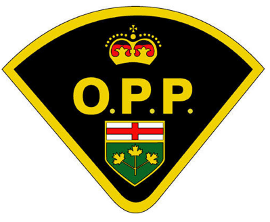Staff
 Members of the Ontario Provincial Police (OPP) Anti-Rackets Branch and the Canadian Anti-Fraud Centre (CAFC) say COVID-19 related scams are ploys to extort money and personal information from fearful, trusting victims.
Members of the Ontario Provincial Police (OPP) Anti-Rackets Branch and the Canadian Anti-Fraud Centre (CAFC) say COVID-19 related scams are ploys to extort money and personal information from fearful, trusting victims.
As COVID-19 continues to spread across Ontario and Canada, fraudsters are taking advantage of citizens’ fear during uncertain times. Fraudsters are exploiting this pandemic to facilitate fraud through cybercrime and any other means to obtain your information.
Police are seeing various scenarios but most are the typical urgency and time sensitive circumstances that criminals place on individuals in order to receive personal and financial information. Many of the reports have a medically related theme in order to instantly set further anxiety in order to gain information. From spoofed government, healthcare, or research companies to unsolicited calls, emails, and texts giving medical advice or requesting urgent personal information, scammers are looking to gain information about you during these times.
According to information received by the CAFC, some of the more popular scams are:
-
Cleaning or heating companies
-
Offering duct cleaning services or air filters to protect from COVID-19
-
Local and provincial hydro/electrical power companies
-
Threatening to disconnect your power for non-payment
-
Centers for Disease Control and Prevention or the World Health Organization
-
Offering fake lists for sale of COVID-19 infected people in your neighbourhood
-
Public Health Agency of Canada
-
Giving false results saying you have been tested positive for COVID-19
-
Tricking you into confirming your health card and credit card numbers for a prescription
-
Red Cross and other known charities
-
Offering free medical products (e.g. masks) for a donation
-
Government departments
-
Sending out coronavirus-themed phishing emails
-
Tricking you into opening malicious attachments
-
Tricking you to reveal sensitive personal and financial details
-
Financial advisors
-
Pressuring people to invest in hot new stocks related to the disease
-
Offering financial aid and/or loans to help you get through the shutdowns
-
Private companies
-
Offering fast COVID-19 tests for sale
-
Only healthcare providers can perform the tests
-
No other tests are genuine or guaranteed to provide accurate results
-
Selling fraudulent products that claim to treat or prevent the disease
-
Unapproved drugs threaten public health and violate federal laws
TIPS
If you were using your computer when you were scammed, it’s possible a virus or malicious software was installed on your computer. Run a full system check using reliable security software. If you do not have security software such as virus scanners and a firewall installed on your computer, a trusted computer professional can help you choose what you need. Scammers may have also gained access to your online passwords or other personal information. Change these using a secure computer. If you paid someone by credit card or through an electronic funds transfer, contact your financial institution or credit card company immediately. They may be able to stop or reverse the transaction.
If you or someone you know suspect they’ve been a victim of a COVID-19 related scam or any other scam, contact your local police service. You can file a complaint through the Canadian Anti-Fraud Centre website or by phone at 1-888-495-8501.











